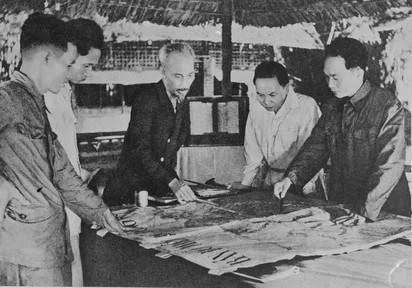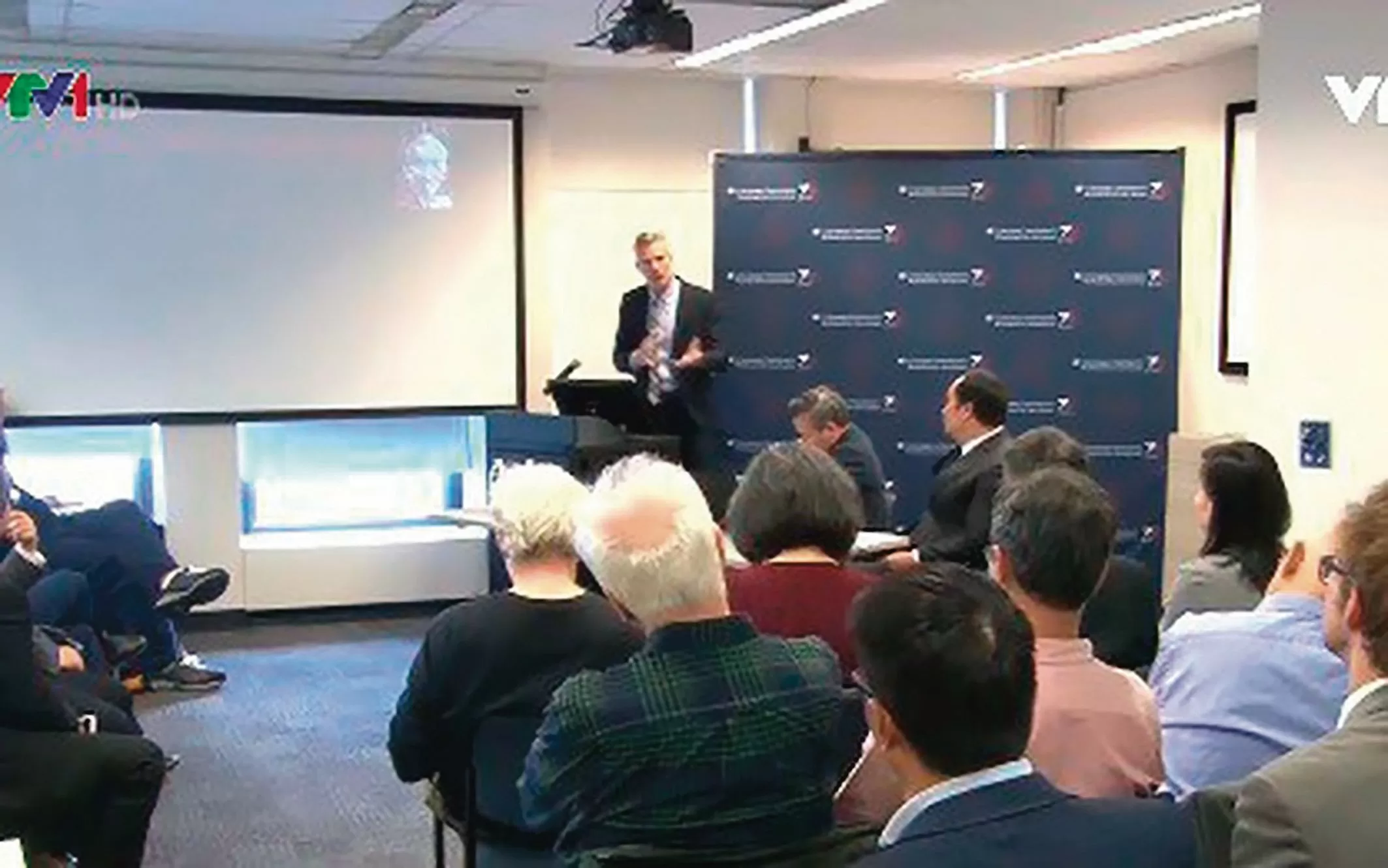
The Geneva Agreements: Defining moment in history
Latest
 |
| General Vo Nguyen Giap presented to President Ho Chi Minh and other Party and State leaders the plan to open the Dien Bien Phu campaign in 1954. |
In the Western scholars, how do you see the Dien Bien Phu Battle, how it affects the history of Vietnam and international history?
I think that in the West generally and in France and the US specifically, Dien Bien Phu is considered a turning point, not just in Vietnamese history but in world history. We see Dien Bien Phu as marking the end of the French colonial period in Vietnam. However we also see Dien Bien Phu as inspiring other national liberation movements around the world in places like Algeria, for example. And so, of course, Dien Bien Phu has great meaning for Vietnamese. But as a battle and as a victory, in the West, there is a recognition that this was a defining moment in the history of our world, particularly at this particular conjuncture.
 |
| Professor Pierre Asselin. |
So how did the Dien Bien Phu Battle affect the Geneva Conference?
I think that the Dien Bien Phu battle allowed the Vietnamese Communist side to enter the Geneva negotiations from a position of strength. It was a big victory. And there were about 10,000 French prisoners who were captured at Dien Bien Phu. So I think that represented a very, very important bargaining trip for Vietnamese Communist leaders as they were entering the Geneva negotiations.
The problem was that, and I think this is an element that most people who studied Dien Bien Phu failed to understand. Dien Bien Phu was a very dramatic victory, but it was only a battle. It was not the end. The war was not ended yet.
The Viet Minh and Ho Chi Minh defeated the French at Dien Bien Phu. But in spite of that, strategically, the French remained very, very strong in Laos. They remained very strong in Cambodia.
And they remained very strong in South Vietnam. I mean, in Vietnam, even after Dien Bien Phu, the French control all the cities. I mean, the cities are nerve centers. They control them almost 100%. So while the Battle of Dien Bien Phu truly is a historic victory and a great victory, we must understand that it’s one big battle in a very long war. And I think that understanding this reality is necessary to understand why Ho Chi Minh decided to negotiate after Dien Bien Phu and why the Vietnamese communist leadership decided to accept the Geneva Accords in July of 1954.
How do you see that as a failure or success for France? Why, why did they accept to sign it?
I think that one of the big reasons the French decide to accept the Geneva Accords is because they realize that there’s problems developing in another colony. And that colony is Algeria. And as much as the French cared about Indochina, Algeria was always most important. So for the French, the Geneva Accords offer an honorable way out. The French don’t have to surrender. They can say, we sign a diplomatic solution. Now we can leave. But I think they, they want to leave, number one, because they cannot sustain the war in Indochina. It’s a very unpopular war in France. And number two, because they now need this army to go and fight in Algeria.
 |
| Prof. Pierre Asselin at the Scientific Conference on President Ho Chi Minh (Globe Ho Chi Minh) at Columbia University, New York, USA on October 4, 2019. |
So what did the Geneva Accords mean to the war against America?
I think that for the rest of the world, the Geneva Accords may be delayed the inevitable, which was US intervention. You know, when we look at the interest of the United States in Vietnam, before World War II, the Americans don’t care about Vietnam. In World War II, Japan occupies Vietnam, the Americans start to care. And then the French try to recolonize Vietnam, the Americans become involved. So year after year, starting in World War II, the American commitment increases and increases and increases. And I think that by 1954, it’s really a question of time before the United States increased its involvement further.
But, thanks to the Geneva Formula, now the Americans have to take a little step back. And I think that was Ho Chi Minh’s strategy. I think that Ho Chi Minh understood that the Geneva Accords were not perfect, there were many problems with them, but at least for a small period, they were likely to keep the Americans out. And during that period, the army, the people’s army, could rebuild itself. It could modernize. It could reorganize itself. Because we talked about Dien Bien Phu.
Dien Bien Phu was a victory, but it was a very, very costly victory. So, at least, because of the Geneva Accords, the people’s army has some time to reorganize itself, to find new recruits, and to train new recruits for a war that’s likely to be even more violent than the French War. So I think on the American side, there’s a sense that the Geneva Accords will not solve anything. And that’s why the Americans, never accepted the Accords.
But the international community recognized the Accords, and that forced the United States to be a little more cautious, right? So, so after 1954, 1955, 1956, 1957, until 1960, the US is still in Vietnam, but very low profile. But then starting in 60, 61, then it increases. But I think, thanks to Geneva Accords, for maybe 5 years, 6 years, the US is staying a little bit away from Vietnam, which is a very good thing for Ho Chi Minh and his army.












